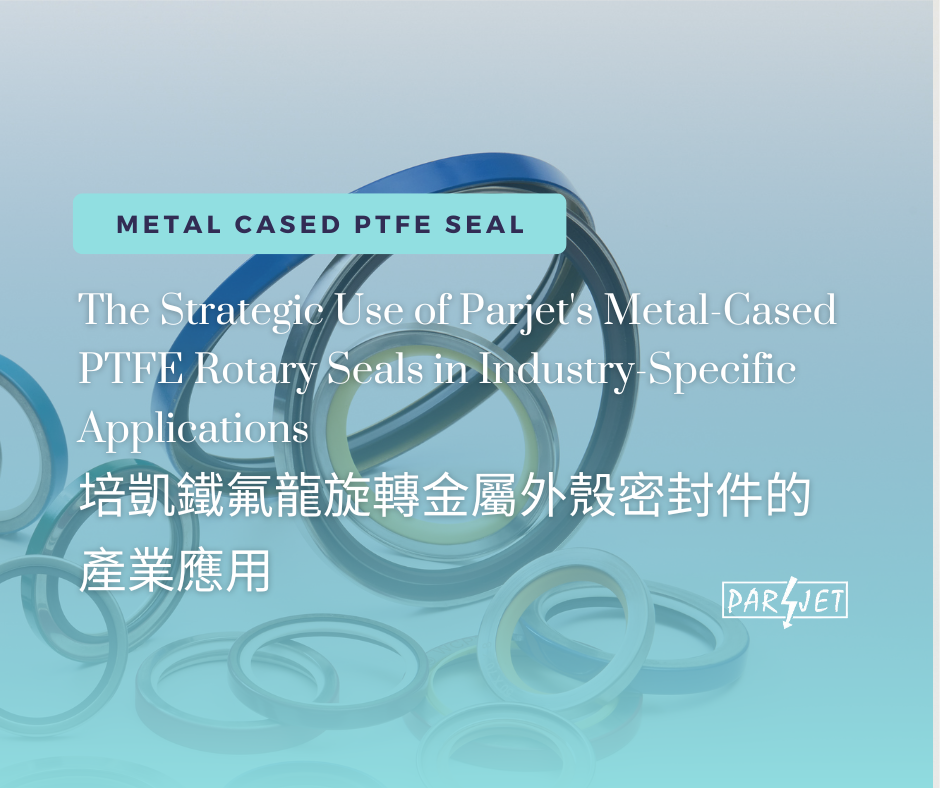
The Strategic Use of Parjet's Metal-Cased PTFE Rotary Seals in Industry-Specific Applications
Introduction
In the realm of industrial machinery, the integrity and reliability of sealing solutions are paramount. Parjet's metal-cased PTFE rotary seals represent a significant advancement in sealing technology, offering enhanced durability and performance under harsh conditions. This article explores why metal casings are essential in certain scenarios and how different metal materials, such as mild steel, stainless steel SUS304, and stainless steel SUS316, cater to the specific needs of various industries.
Why Opt for Metal-Cased Seals?
Metal-cased rotary seals from Parjet are chosen for their ability to provide superior structural support and resilience in applications involving high rotating speed. The metal casing protects the PTFE seal element from rotating with the shaft, ensuring the seal maintains its integrity and effectiveness over time. This is crucial in applications where seal failure could lead to significant downtime or safety risks.
Material Analysis and Industry Applications
• Mild Steel (SPCD):
Properties: Mild steel casings offer good strength and malleability, making them suitable for general applications where high corrosion resistance is not a primary concern.
Industries: Widely used in automotive and general manufacturing, mild steel is a cost-effective option for less aggressive environments.
• Stainless Steel JIS SUS304:
Properties: Known for its corrosion resistance and strength, SUS304 stainless steel is less prone to rusting and can withstand exposure to a variety of chemical environments.
Industries: Ideal for food processing, medical equipment, and any application where hygiene is critical and the environment may involve mild corrosive substances.
• Stainless Steel JIS SUS316:
Properties: SUS316 provides even greater corrosion resistance than SUS304, especially against chlorides and marine environments.
Industries: Essential for marine applications, chemical processing, and pharmaceutical manufacturing, where leakages are not allowed in highly corrosive settings.
• DIN1.4301 (Equivalent to SUS304):
Properties: Similar to SUS304, DIN1.4301 offers excellent corrosion resistance and formability.
Industries: Used in applications ranging from kitchenware and architecture to chemical containers and thread inserts, making it versatile for industries requiring durability without the conditions that demand the high resistance of SUS316.
Choosing the Right Material
Selecting the appropriate metal casing for a Parjet PTFE rotary seal involves understanding the environmental conditions and chemical exposures likely to be encountered in the industry. Manufacturers must consider factors such as:
• Corrosion Potential: The likelihood and type of corrosion should guide the material choice.
• Mechanical Requirements: The expected mechanical stresses and pressures should match the strength and flexibility of the metal.
• Regulatory and Safety Standards: Industries such as food processing and pharmaceuticals have stringent standards that materials must comply with.
Conclusion
Parjet's metal-cased PTFE rotary seals are crucial components that enhance the efficiency and safety of industrial operations. By understanding the specific needs of each industry and choosing the right material, manufacturers can optimize the performance and longevity of their machinery. For those in industries ranging from automotive to pharmaceuticals, understanding these options ensures that you select the most effective sealing solution available.
Contact Us
For more detailed information on how Parjet's metal-cased PTFE seals can serve your specific industrial needs, or to discuss customization options, contact us directly.





